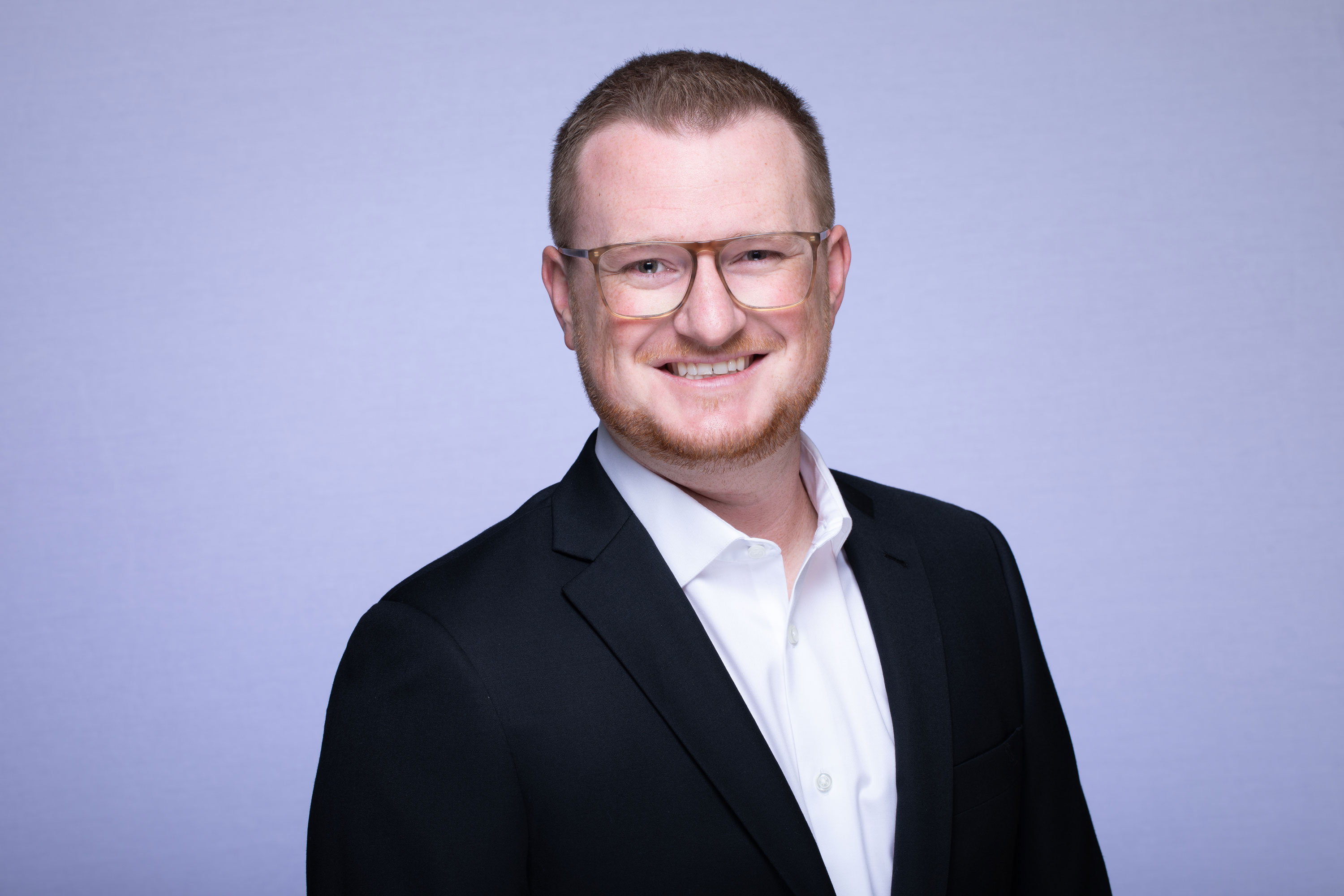Loading...
Graydon Bazell
Baylor EMBA 2023
Vice President of Product, DAC Technologies
By Suzi Morales
When Graydon Bazell started the Dallas Executive MBA (“EMBA”) program, he was director of business development at DAC Technologies, a division of optical retail giant EssilorLuxottica. He had begun a different MBA program during the pandemic but transferred to the Baylor University Hankamer School of Business after moving to Dallas for work.
Bazell applied what he learned in the EMBA program directly to his work, sometimes even the same day. As he progressed in the classroom, he also took on more responsibility at work. During the time he was in the EMBA program, he was promoted to vice president of product, which encompasses production, customer service, logistics and more.
Bazell calls the Dallas EMBA program “transformational.” Here’s why:
1. The power of the cohort
Bazell had enjoyed the courses at the prior MBA program but once he began the Dallas EMBA program, he realized something had been missing. “I wasn't super connected to the program, since it was all online and the classmates changed with every class,” he recalls. “We weren't a cohort.”
When he began the Dallas EMBA program, that changed. Throughout the program, Bazell connected with his cohort for collaborations in and out of the classroom. He calls it “the power of the cohort,” noting, “it was a special subset of the Baylor family.”
Most members of the cohort had significant work experience prior to entering the program. Bazell says the strengths of each student added value to the lessons they were learning in the classroom. The cohort organized a “massive study group” that met every week over Zoom. Each session, a classmate with knowledge of the subject they were discussing would take the lead in the discussion.
“We all gained from each other's experience. We all learned how to be most effective versions of ourselves,” he says. “If I had a heavy finance class, I went to a friend who was a finance director. [Classmates] gave up lots of their time, nights and weekends to work together to ensure we all learned and grew together. A lot a lot of selfless servant leadership going on in that group.”
2. Faculty with industry experience
Many of the Dallas EMBA faculty have executive level experience with major corporations.
One of Bazell’s favorite courses was Managing for Value Creation, taught by Professor Don Carpenter, a CPA and former vice president and chief accounting officer for Waste Management, Inc. Carpenter teaches the class using some of the same modules and spreadsheet templates he used to manage the corporation’s finances. He encouraged students to take a more holistic approach to business evaluation and consider not only a company’s financials, but also intangibles like company history and values.
“That was one thing that stood out to me about the Baylor program … the professors had real world experience, had executive level experience,” says Bazell.
3. Actionable skills
While Bazell was taking the Managing for Value Creation course, he also was leading an acquisition at work. Many days after class, he would approach the professor with questions about the process. “The arithmetic and the modeling that we were doing in class, I was able to take out of the classroom put into practice, literally the same day or the next day, and then build presentations off of what I've learned in class, applying it to a real world scenario in real time,” says Bazell.
Bazell says his promotion at work was a result of applying his lessons from the classroom. “That was a big part of what got me on the radar with global leadership at [EssilorLuxittica] and helped move me into this position,” he notes.
4. Investment in student success
According to Bazell, Hankamer professors are also invested into the lives of students well beyond the boardroom. For example, in his basic corporate finance class, Professor Bradley Beauvais taught students about how the same concepts they could apply in the business context also transferred to personal finance. “He was a professor who really went out of his way to not only help his students grow as business leaders and understand corporate finance, but also apply it to personal finance and wealth creation,” says Bazell. “So really a focus on in his class was wealth creation, wealth management, how to make sound financial decisions as an individual and a leader.”
Bazell says the professor’s approach helped the class go deep into the weeds of corporate finance in a way that made it accessible to students with a range of backgrounds. According to Bazell, professors in the EMBA program understood that students had invested significant time into the program while they also continued to work. Professors made sure that students were getting value from their classes.
5. The Baylor network
In the two years Bazell was in the Dallas EMBA program, he and his cohort bonded over coursework and life. They celebrated birthdays and births of children and grandchildren. At the time of the interview for this article, they were planning a barbecue for the following weekend and all members had RSVP’d that they would be attending.
But the Dallas EMBA network goes well beyond the classmates in any year’s cohort. “There’s a really large community of leaders in top of their fields,” says Bazell. He’s sought them out for advice on next career steps and more.
In addition, Bazell says the credibility of earning an MBA from an institution like Baylor “signals to the market that you are someone to be taken seriously.” This has played out in Bazell’s own experience, as the EMBA experience helped him earn his own promotion. If you’re interested in how the Dallas Executive MBA program can help take you to the next level in your career, learn more here.
